The Six in Six meme or, as I call it, challenge, was first proposed and designed by The Book Jotter and now is in its tenth year. This is a challenge to list six bookish categories (the range of categories on offer is immense and can be found here), and, within each, to list six books that answer the question. The idea is that the books selected should reflect the blogger’s reading material of the past six months. As you can see below in my answers, I do not read many new releases and have included non-fiction books alongside fiction. The books listed are in no particular order and, apart from the “movie” categories below, were read by me in the past six months.
I. Six books I have read but not reviewed:

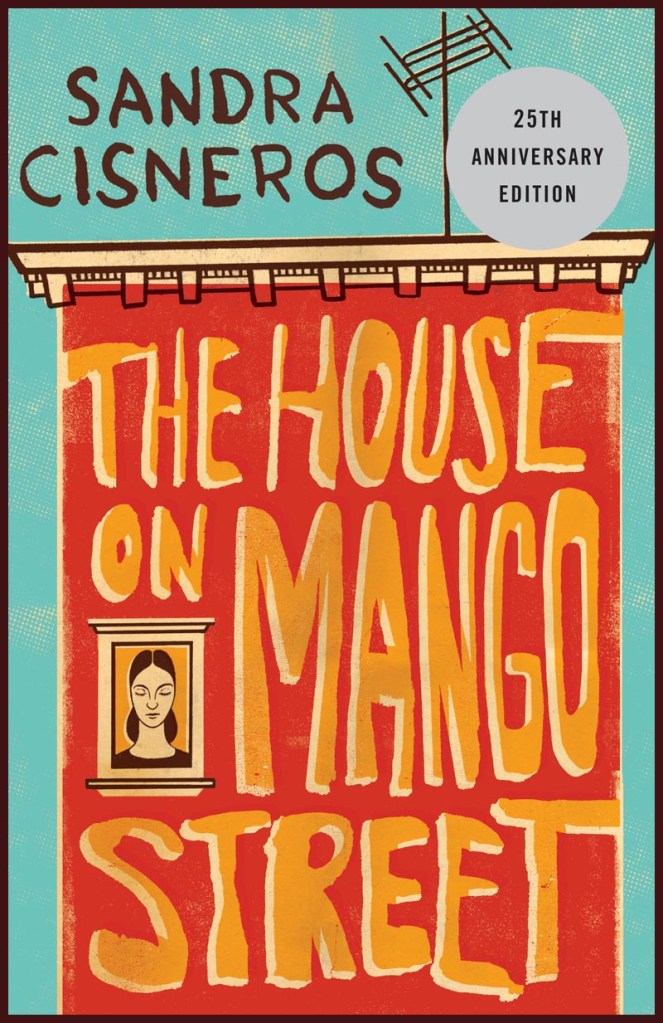

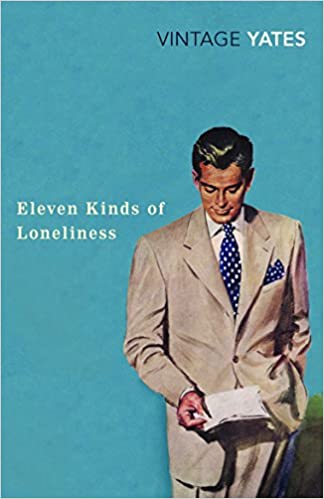


On Parole (1988) by Akira Yoshimura – Though not as good as the author’s Shipwrecks (1982), On Parole is still a thought-provoking book and a penetrating look at one man recently released from prison and trying to adjust to a society he longer recognises. The book was also loosely adapted into a film of 1997 (The Eel), which won the Palme d’Or at the Cannes Film Festival.
The House on Mango Street (1984) by Sandra Cisneros – This tale is from a little girl, Esperanza, originally from Latin America, who feels uncomfortable living where she does, in a poverty-stricken neighbourhood of Chicago. The merit of the book is the true voice of a child trying to make sense of the world around her.
Butcher’s Crossing (1960) by John Williams – John Williams may be known for his novel Stoner (1965), but he also has other good books beside it. Butcher’s Crossing follows one inexperienced young man circa the 1870s who leaves his comfortable surroundings and education to travel to one forgotten spot on earth – Butcher’s Crossing, Kansas. He soon befriends a local buffalo hunter and walks out to seek adventure in the open, but will he find what he is looking for? This novel has beautiful descriptions of nature and reminded me of Mayne Reid books featuring buffalos which I used to read as a child, but it is also said to be influenced by the philosophy of Ralph Waldo Emerson.
Eleven Kinds of Loneliness (1961) by Richard Yates – This is a collection of short stories from the author of Revolutionary Road (1961) and The Easter Parade (1976). Some stories here, such as “A Glutton for Punishment”, “The B.A.R. Man” and “No Pain Whatsoever”, are slightly better than others, but all of them are more or less poignant and full of irony, exploring relationship trouble, loneliness, post-war identity and societal pressure.
The Shooting Party (1884) by Anton Chekhov – This story centres on Olga, a beautiful daughter of a poor forester living on a country estate. She finds herself surrounded by men who admire her beauty and personality. A tragedy in the woods seals her fate, but who is the guilty party? The novel has the distinction of pre-dating Agatha Christie’s The Murder of Roger Ackroyd (1926) in portraying a possible murderer as a possible narrator. There is also a good Russian film A Hunting Accident (1978) that is based on this novel.
The Red Laugh (1905) by Leonid Andreyev – This unflinching, unapologetic short story details the slow descend into madness of one Army Officer who is succumbing to mental disturbances caused by shell shock. This anti-war story is a powerful portrayal of the impact of war brutalities on the human psyche.
II. Six authors new to me:
- Ayi Kwei Armah (The Beautyful Ones Are Not Yet Born)
- Rose Tremain (The Colour)
- Valerie Martin (Property)
- Eka Kurniawan (Beauty is a Wound)
- Olga Ravn (The Employees)
- Christopher St. John Sprigg (Death at 8.30)
III. Six books that took me by the hand and led me into the past:






Augustus (1972) by John Williams – This was a fascinating read about the life of Gaius Octavius Thurinus (Augustus), the first Emperor of the Roman Empire. Though quite dense in places, it is still a beautifully-written, contemplative novel that tries to uncover the man behind the image and the tricky, corrupt world of Rome after the assassination of Julius Cesar.
Beethoven: A Life in Nine Pieces (2020) by Laura Tunbridge – This is a very good book about Beethoven and his times as seen through the composer’s nine musical pieces. It “delves deep into Beethoven’s talent and music, discarding the stereotype that the man was an elusive and isolated genius who achieved his success overnight” (my full review).
Genghis Khan & the Making of the Modern World (2004) by Jack Weatherford – This book is probably one of the best historical non-fiction books I have ever read. It tells the story of Genghis Khan of of the Mongol Empire who was, arguably, the most successful conqueror in history. From his childhood to his grandsons’ last victories, we get to know the man behind the myth as Weatherford also clarifies all the factors that made the Mongols victorious so many times (my review).
Property (2003) by Valerie Martin – This story about slavery is set in 1828 in Louisiana. We are told the story from the perspective of a slave owner. My conclusion was the following: “although the novel is uneven and the narrator is made intentionally unlikeable, Valerie Martin still wrote a chilling, eye-opening and interesting account of slavery and the meaning of ownership in the mid-nineteenth century US” (my full review).
Joan of Arc: A History (2014) by Helen Castor – I have always wanted to read a biography of Joan of Arc. Although Castor has certainly put in a lot of research work, I wanted to see more of a story of Joan herself. Still, it is a worthwhile read for people who are interested in that period in history.
Pure (2011) by Andrew Miller – In this story, set in Paris in 1786, engineer Jean-Baptiste Baratte is tasked with a job no one wants to do – the clearing of the graveyard Les Innocents in central Paris. While doing so, he makes both enemies and friends. The book is definitely a very mixed bag, but it does have some evocative writing and the atmosphere of old Paris. In its atmosphere and themes, the book even reminded me of Patrick Suskind’s acclaimed novel Perfume: The Story of a Murderer (1985).
IV. Six books which are better than the film:






The Bonfire of the Vanities (1987) by Tom Wolfe – I do not know what they were thinking when they were making the film of 1990, but the book, a slight re-working of The Great Gatsby theme, is definitely much better. It is hard to adapt books to screen which have much internal thinking done by the main character and relies on “horrific realisations” as a climax.
Anna Karenina (1877) by Leo Tolstoy – There have been many serial and film adaptations of this Russian classic over the decades, but I am referring to the 2012 film directed by Joe Wright. It has a “theatrical production” effect, but it was as far from capturing the essence of Tolstoy’s novel as the Arctic is from the Antarctic. The casting choice was particularly bad.
The Goldfinch (2013) by Donna Tartt – I knew the film adaptation was going to be a disaster and it was.
Harry Potter & The Goblet of Fire (2000) by J. K. Rowling – I can never watch this film adaptation without shaking my head. The choice of the cast is out of some nightmare, half of the book is not even there and nearly everything is just wrong. The book deserved more.
The Scarlett Letter (1850) by Nathaniel Hawthorne – Everybody pretty much agrees that the 1995 film adaptation starring Demi Moore was quite bad.
Sliver (1991) by Ira Levin – Sliver may not be the best work of Ira Levin (see my ranking of his work here), but it deserved a better adaptation than the film of 1993.
V. Six books which are worse than the film:

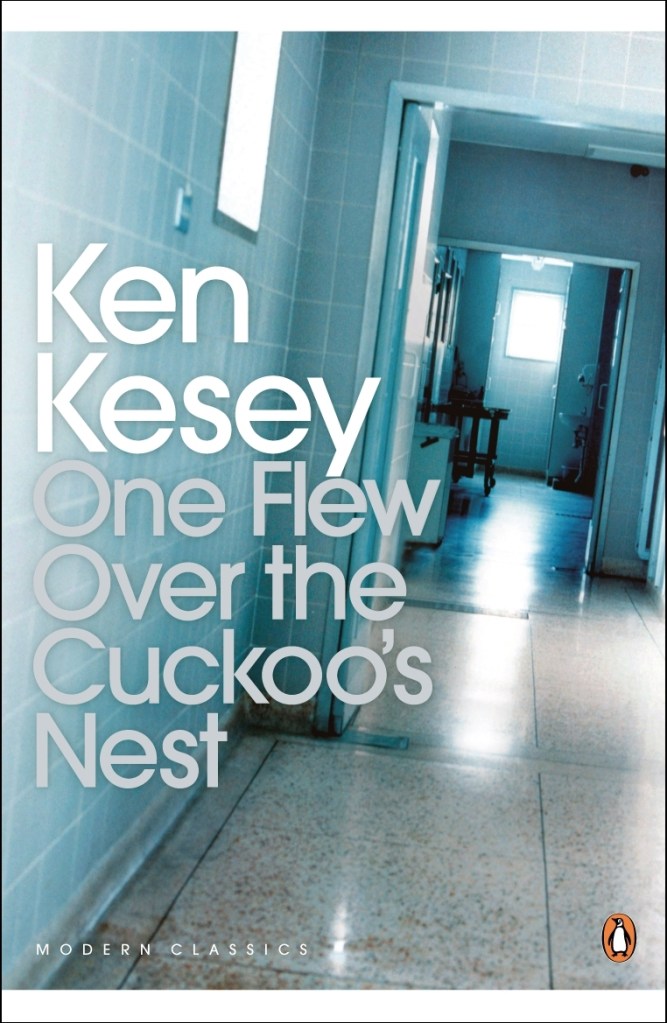
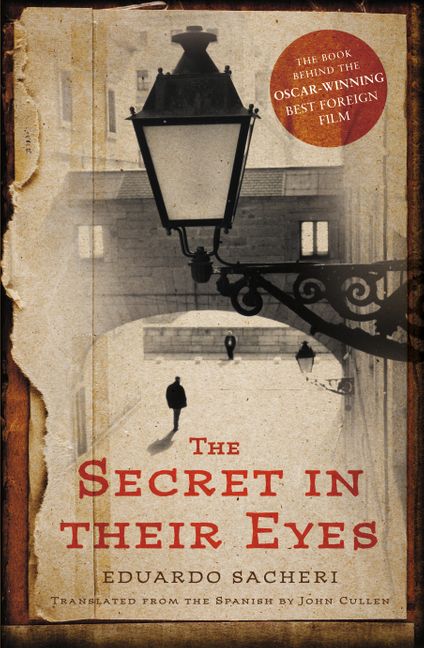

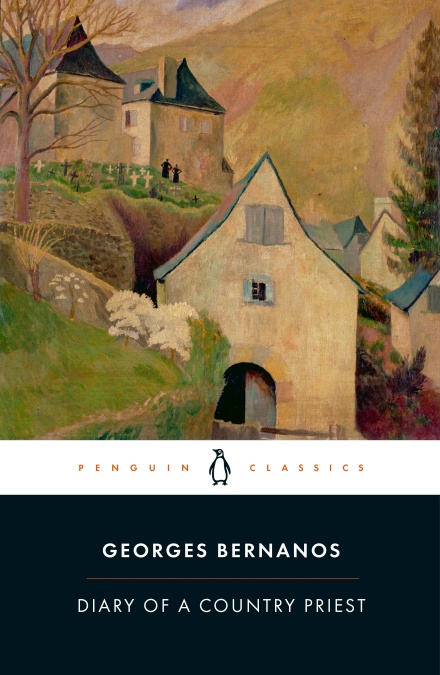

Forrest Gump (1986) by Winston Groom – The film is much better known that the book and actually helped the book to achieve some sales.
One Flew Over the Cuckoo’s Nest (1962) by Ken Kesey – The books on this list are not necessarily “bad”, but their film versions are certainly more impressive. Miloš Forman’s film One Flew Over the Cuckoo’s Nest (1975) has certainly surpassed its literary counterpart, in my opinion.
The Secret in their Eyes (2005) by Eduardo Sacheri – I read the book and saw the film, and can say that the Argentinian film of 2009 is so much better, a nearly perfect piece of cinema which deserved its Academy Award.
Still Alice (2007) by Lisa Genova – I know the book is very popular, but I still prefer the film, maybe because Julianne Moore was so good in her leading role. This novel talks about a University Professor who slowly loses her mind to Alzheimer’s disease.
Diary of a Country Priest (1936) by Georges Bernanos – The book is a French classic really, but Robert Bresson’s film Journal d’un curé de campagne (1951) is now one of my favourite films of all time. It also contains astonishing performance by Claude Laydu in the role of one young priest whose deteriorating health and complex relationship with his parish begin to overwhelm him.
The Prestige (1995) by Christopher Priest – This book is very good, but I still admire Christopher Nolan’s film of 2006 too much not to list the book here. The book is about a clash of two brilliant stage magicians in the late 1800s England. There are plenty of surprises in this book (as in the film).
VI. Six books that didn’t live up to (my) expectations:






Klara & The Sun (2021) by Kazuo Ishiguro – I think I said enough about this book in my review, but to be brief – I am a huge admirer of Kazuo Ishiguro and there are interesting ideas, a very curious “robot” voice and good writing in Klara, but there were also too many things that just did not work for me, including the “thin” and predictable plot and the exasperating dialogues. The book is now longlisted for the Booker Prize.
The Stolen Bicycle (2018) by Wu Ming-Yi – This Man Booker International Prize-nominee fell short of my expectations. It should have been a perfect read for me because I am interested in the history of Taiwan, and antique bicycles will have a certain appeal for me. Unfortunately, the story was not there for me and I could not engage fully with the author’s lyricism. Taiwan-born Wu Ming-Yi is also an environmentalist and I am still to eager to read his other book The Man with the Compound Eyes (2011/2013).
Ties (2014/2017) by Domenico Starnone – I could not appreciate this book and I tried. It has its charm and intrigues, I suppose, but the story’s familial affairs and midlife crises felt too melodramatic for me. The book simply did not hold my attention. Rumours have it that Starnone may as well be the pseudonymous Italian novelist Elena Ferrante.
The Looking-Glass Sisters (2008/2015) by Gøhril Gabrielsen – This story of two very-different-from-each middle-aged sisters living in Norwegian wilderness is certainly atmospheric and has some psychological insight, but it also turns rather dull very early on and is unnecessarily bleak.
The History of the Universe in 21 Stars (2020) by Giles Sparrow – As I said in my review, this is a curious book that introduces some interesting facts about the universe and scientific discoveries through just twenty-one stars, but it also cherry-picks its research findings and the language used leaves much to be desired.
The Peculiar Life of a Lonely Postman (2005) by Denis Theriault – I wish I loved more whimsical tales such as this one. Here, the setting is Montreal and one “extraordinary” postman has the habit of stealing and reading other people’s mail. He comes across unusual “love” letters written in a form of Japanese poetry and, after the sender dies, decides to continue the unusual correspondence by impersonating him.


I enjoyed your challenge (thinking of doing this myself. If so, I’d better hurry!). I saw many books I’ve either read (Martin’s Property, for example, which I thought absolutely chilling); thought of reading (Richard Yates. I really must get around to him) or actually added to my TBR list (Williams’ Augustus, which I was looking at the other day; I’ll probably skip Butcher’s Crossing). I totally agree with you about the movie Bonfire of the Vanities — whatever substance were they taking, when they cast and filmed this movie?
LikeLiked by 2 people
Thank you! I still think that Yates’ best book is Revolutionary Road, of course, but some of his other ones are also good and now unjustly ignored, including The Easter Parade. And, yes, I didn’t even expect I would be enjoying Williams’ books after I read Stoner, but I do! One other book by him is Nothing But the Night, but perhaps it will really be for me some distant-future read.
LikeLiked by 2 people
A brilliant post, Diana! Thanks for the introduction to – Beethoven: A Life in Nine Pieces (2020) by Laura Tunbridge. I just downloaded the book and look forward to reading it and being reminded of my piano lessons. I follow Liz Humphreys and her blog Leaping Life – six degrees of separation. It is a great idea and when I am less scattered with my reading, I may join you.
LikeLiked by 1 person
Thank you! I hope you enjoy Beethoven: A Life in Nine Pieces. It is a very curious biography of Beethoven and really delves deep into the man and his music through the times in which he lived. If you decide to do a similar meme, that will be great! I think that bookish memes and challenges are interesting since they allow bloggers to demonstrate the range of reading they are up to at any given time.
LikeLiked by 1 person
I am delighted that we connected and am looking forward to our ongoing dialogue. Many thanks!
LikeLiked by 1 person
Great post! I appreciate all the work that you must have done to complete this one.
LikeLiked by 2 people
This is a complex challenge. I share your Klara disappointment. Also, I avoided watching the film of The Goldfinch because I loved the book. Glad to hear I was right.
LikeLiked by 1 person
Yes, when I heard they were making The Goldfinch film I could immediately name so many things that can go very wrong, and, unfortunately, they did go wrong. I know that Donna Tartt distanced herself from the film completely and now it is clear that for a good reason. The book may seem to have these “action scenes” and vivid characters, like the bombing and Boris, which may translate well to the screen, but, in fact, the true essence of the book, the main drama lies in what was going in the main character’s mind, including emotions felt, grief and memories. I have no clue how they thought they were going to translate that to the screen, let alone make their film as subtle and beautiful as the novel.
LikeLiked by 1 person
I absolutely agree. And therein lies the difficulty with so many films of books.
LikeLiked by 1 person
Yeah! You did it! I’m kind of surprised about One Flew Over… I thought both the book and the movie were great, but I liked the book better. No matter!
LikeLiked by 1 person
That’s interesting! Don’t worry, I do like people not agreeing with me! I think I will re-read One Flew Over the Cuckoo’s Nest, who knows, maybe I will like it more. The film definitely impressed me, but it is also true that the author “hated” the film and had a different version in mind of what the film should be.
LikeLiked by 1 person
They also bilked him out of his money. But he didn’t hate the film, he just wanted the Chief to narrate it like he did in the book.
LikeLike
Thank you very much for joining in. Some bokos for me to look out for, thanks to your lists.
LikeLiked by 1 person
Fun lists! I love that you did two with the movie tie ins. I’m always struck by when the movie is better than the book because it seems like that just shouldn’t be the case. The only one I can compare is Still Alice and I thought the book and the movie were excellent. Thanks for sharing your great lists, I’m adding the movie categories in next year’s post!
LikeLiked by 1 person
Thank you and movie categories are definitely very fun to do! I guess I am biased when it comes to film Still Alice, I just love everything about it, including that touching ending.
LikeLiked by 1 person
Great meme! So many titles I need to look into
LikeLiked by 1 person
Thanks for visiting my TTT earlier, Diana. That way I found your wonderful blog.
I loved this challenge, might have to take that up myself one day. I think I could have come up with a hundred examples where the book is better than the film but only very, very few where it is the other way.
Happy Reading!
LikeLiked by 1 person
Thanks very much for stopping by! It’s a fun challenge, and I agree that generally films hardly live up to their screen counterparts. Our imagination conjures up so much when we read that it is practically impossible to render everything, least of all do it subtly and beautifully, to the screen.
LikeLike
True. Our ideas are usually different from those of the film makers. I just hate it when the delete some stuff and then add something that wasn’t even in the book. That’s unpardonable.
LikeLiked by 1 person